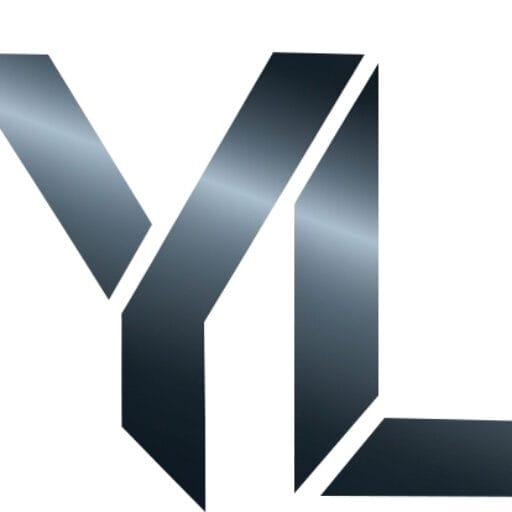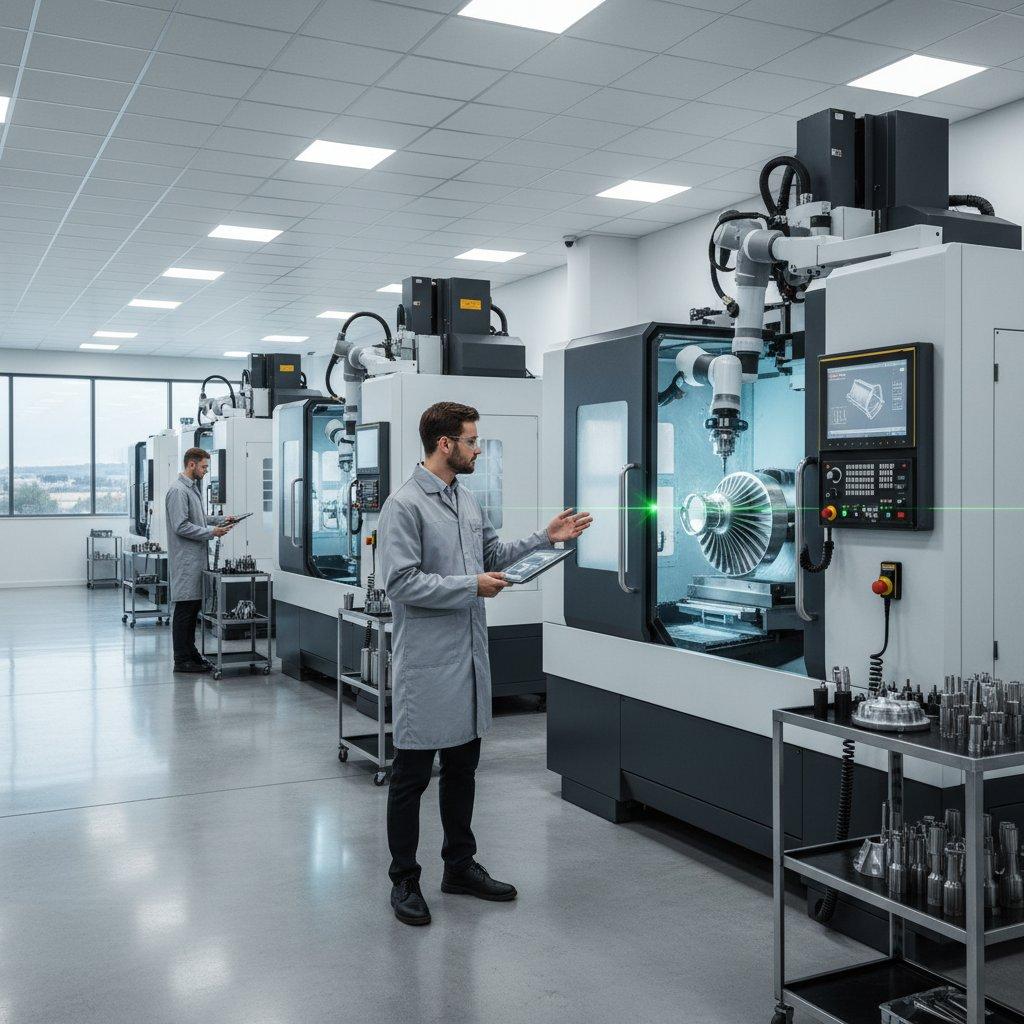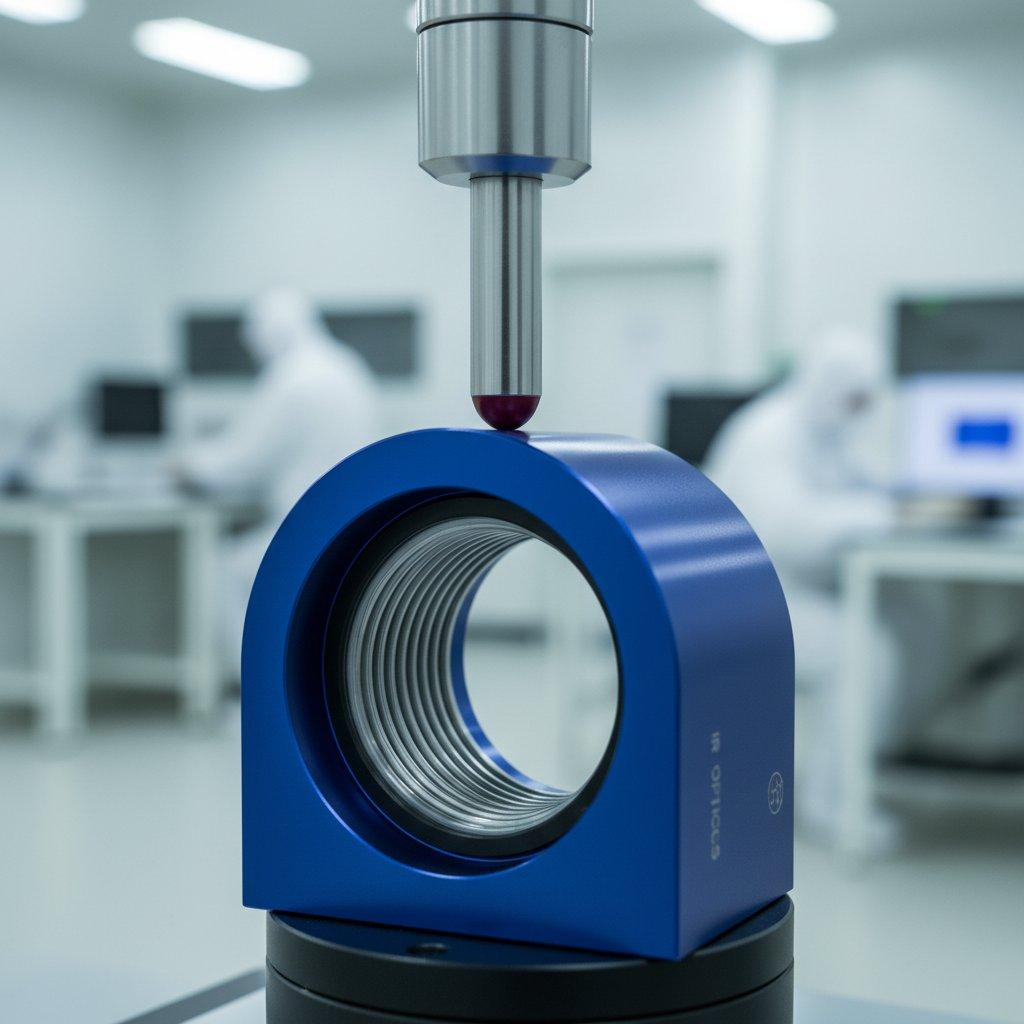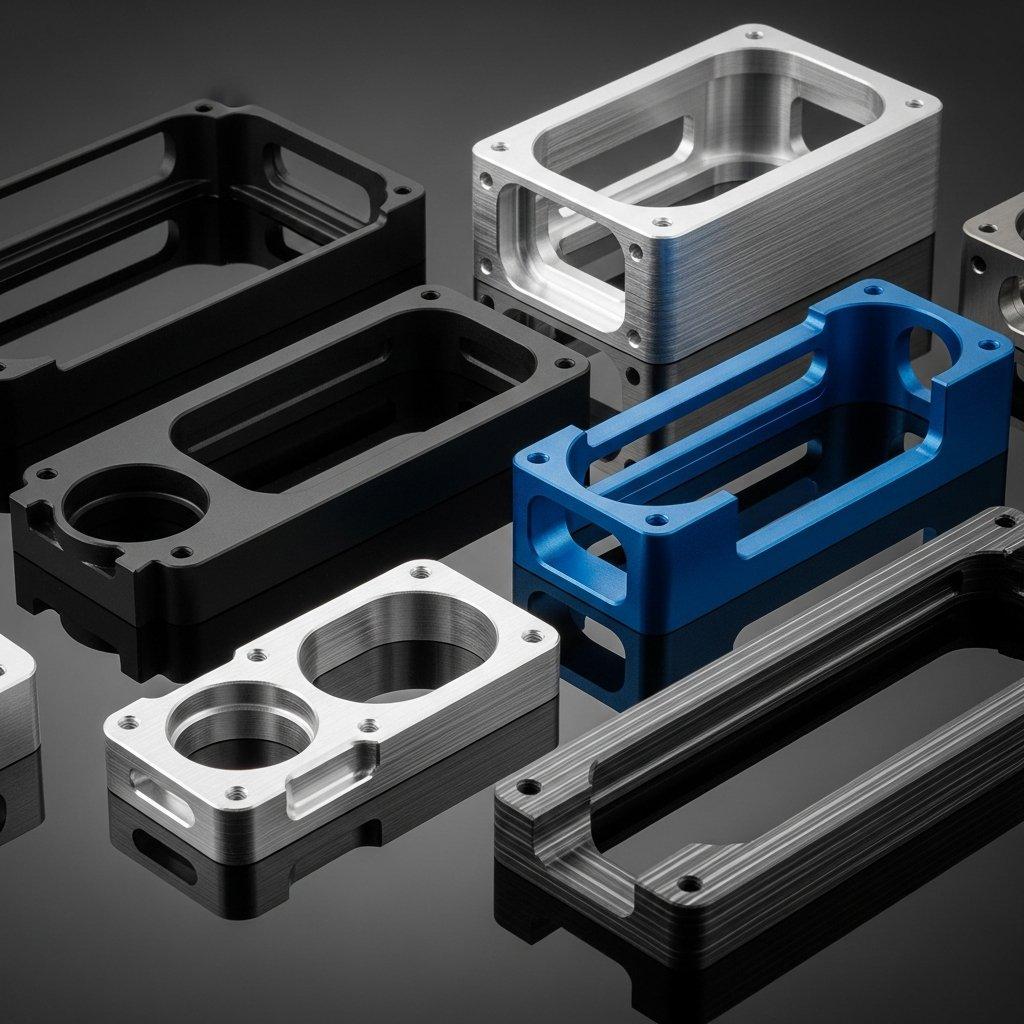CNC Part Machining: CAD to Finished Product
What if the journey from your intricate CAD design to a flawlessly finished CNC part was not just a process, but a precisely engineered, transparent partnership? Many businesses struggle with inconsistent quality, unreliable lead times, and a lack of transparency when sourcing custom CNC parts.
The challenge lies in finding a manufacturing partner who can consistently translate complex digital designs into physical precision with unwavering accuracy.
At ly-machining, we understand these critical pain points. We eliminate the guesswork, offering a complete, expert-led CNC machining process from initial CAD concept to the final, high-quality component. Our commitment to precision, reliability, and clear communication sets the foundation for your project’s success.

CNC Part Machining: A Complete Process Guide from CAD to Finished Product
The complete CNC machining process transforms CAD designs into high-quality, physical parts through meticulous stages: CAD optimization, material selection, DFM review, CAM programming, high-precision machining, and rigorous quality control. This expert-led workflow ensures unparalleled accuracy, efficiency, and reliability, delivering custom-engineered components that meet the most demanding specifications.
The journey of CNC part machining involves a meticulously planned and executed workflow. From initial design optimization to final quality assurance, each stage demands precision, technical expertise, and a deep understanding of manufacturing principles. This guide outlines the comprehensive journey, highlighting the critical steps involved in precision CNC manufacturing.
For reliable custom part machining, the entire CNC production workflow is carefully managed. It ensures that every detail, from material selection to post-processing, contributes to the final component’s integrity and performance. Our factory, based in Shenzhen, China, prioritizes an end-to-end approach to deliver exceptional results.
The Foundation: CAD Design & Preparation
The success of any CNC machining project begins long before metal meets tool. It originates with the robust design and meticulous preparation of the CAD model. This foundational stage dictates the feasibility, cost-effectiveness, and ultimate precision of the final component.
Engineers and designers must consider manufacturability from the outset. This ensures that designs are not only functional but also optimized for CNC processing. This early engagement in the CNC machining process guide minimizes revisions and accelerates production.
Optimizing CAD for CNC Part Machining
Effective CAD optimization is crucial for efficient and accurate CNC part machining. This involves ensuring geometry is clean, features are manufacturable, and tolerances are clearly defined. Ambiguities in the CAD model can lead to errors, delays, and increased costs during production.
Key considerations include avoiding overly thin walls, sharp internal corners, and excessively deep pockets without appropriate draft angles. Our team provides expert DFM recommendations to refine your designs for optimal CNC performance and streamlined production.

Selecting Materials for CNC Processing
Choosing the right material is paramount for the functionality and durability of the finished CNC part. Factors such as strength, weight, corrosion resistance, thermal properties, and cost all influence this critical decision. Our expertise extends across a wide range of materials.
We work with various metals and plastics, ensuring the selected material meets your application’s specific requirements. Material certification is always provided to guarantee traceability and quality, supporting your supply chain resilience.
H4: Common CNC Machining Materials and Properties
| Material Type | Key Characteristics | Typical Applications |
|---|---|---|
| Aluminum Alloys (e.g., 6061, 7075) | Lightweight, high strength-to-weight ratio, excellent machinability, corrosion resistant | Aerospace, automotive, consumer electronics, jigs & fixtures |
| Stainless Steel (e.g., 303, 304, 316) | High strength, corrosion resistant, good weldability, aesthetic appeal | Medical instruments, food processing, marine components |
| Titanium (e.g., Grade 2, Grade 5) | Extremely high strength-to-weight ratio, excellent corrosion resistance, biocompatible | Aerospace, medical implants, high-performance sports |
| Engineering Plastics (e.g., ABS, Nylon, Delrin) | Lightweight, good insulation, chemical resistance, low friction | Prototypes, electrical components, gears, wear pads |
| Brass | Good electrical conductivity, excellent machinability, low friction, aesthetic | Electrical connectors, plumbing components, decorative parts |

Design for Manufacturability (DFM) Review
The DFM review is a collaborative process where our engineers analyze your design to identify potential manufacturing challenges before production begins. This proactive step is crucial for optimizing the CNC production workflow and ensuring cost-effectiveness. We provide actionable feedback to improve part quality, reduce costs, and accelerate lead times.
This iterative process ensures that your custom part machining project proceeds smoothly. Our DFM recommendations cover aspects like feature accessibility, tooling selection, and tolerance stack-up, making designs more robust and manufacturable.
H4: Key DFM Considerations
| DFM Aspect | Description | Benefit to Client |
|---|---|---|
| Feature Accessibility | Ensuring tools can reach all part features without collision or requiring complex setups. | Reduces machining time, lowers cost, improves consistency. |
| Wall Thickness | Recommending appropriate wall thicknesses to prevent warping, vibration, or breakage. | Enhances part strength, prevents defects, ensures stability. |
| Internal Radii | Suggesting optimal corner radii to match standard tool sizes, avoiding sharp internal corners. | Speeds up machining, reduces tool wear, improves part integrity. |
| Tolerance Specification | Reviewing and advising on optimal tolerances, balancing function with manufacturability. | Prevents over-tolerancing (costly) and under-tolerancing (functional issues). |
| Material Choice | Validating material selection against design requirements and machining capabilities. | Ensures material compatibility, cost-effectiveness, and performance. |
Pre-Production: Planning CNC Part Processing
Once the CAD design is finalized and optimized, the pre-production phase meticulously plans every aspect of the CNC part processing. This stage is critical for translating the digital model into precise machine instructions and setting up the physical environment for production. It directly influences the efficiency and accuracy of the subsequent machining operations.
Effective planning in this phase minimizes errors, optimizes material usage, and ensures the entire CNC production workflow runs seamlessly. Our advanced systems and experienced engineers guarantee thorough preparation for your custom part machining, addressing potential issues before they arise.
From CAD to CAM Software Integration
The transition from CAD to CAM (Computer-Aided Manufacturing) software is the bridge between design and production. Our engineers utilize advanced CAM software to interpret your CAD model and define the necessary machining operations. This integration is vital for generating accurate toolpaths.
CAM software allows for simulation of the machining process, identifying potential collisions or inefficiencies before they occur. This digital dry run saves time and material, ensuring a smooth start to CNC part machining and predictable outcomes.
Generating Precision Toolpaths for CNC
Generating toolpaths involves creating the exact routes and movements the cutting tool will follow to shape the raw material. This process demands precision and an in-depth understanding of cutting mechanics, material properties, and machine capabilities. Optimal toolpath generation is key to achieving superior surface finish and dimensional accuracy.
Our CAM specialists meticulously plan every pass, considering spindle speeds, feed rates, and depth of cut. This ensures efficient material removal while maintaining the integrity of the component and meeting strict quality criteria.

Fixture Design & Advanced Tooling Setup
Proper fixture design is essential for securely holding the workpiece during CNC part machining, preventing movement, and ensuring repeatability. Our engineers design custom fixtures tailored to the specific geometry and production volume of your parts. This stability is fundamental for achieving tight tolerances and consistent results.
The selection and setup of advanced tooling – including end mills, drills, and specialty cutters – also play a crucial role. We utilize high-quality, application-specific tools to achieve superior surface finishes and extend tool life, reducing overall project costs.
Transparent Pricing & Quoting Your CNC Parts
Understanding the cost structure for custom part machining is vital for our clients. We provide transparent, detailed quotes that break down expenses, including material costs, machining time, tooling, post-processing, and quality control. Our goal is to ensure you have a clear financial understanding of your project without hidden fees.
As a direct source manufacturer, we eliminate intermediary markups, offering competitive pricing without compromising on quality or service. This transparency builds trust and fosters long-term partnerships, providing cost-effective solutions.
The Core: Executing High-Quality CNC Production
With meticulous planning complete, the core phase of high-quality CNC production begins. This is where the digital designs are brought to life through precise machining operations. Our factory in Shenzhen, China, operates advanced CNC machines managed by experienced technicians, ensuring every custom part machining project meets the highest standards.
This stage of the CNC machining process guide focuses on execution, leveraging cutting-edge technology and human expertise to achieve unparalleled accuracy and efficiency. We are dedicated to delivering precision CNC manufacturing outcomes that consistently exceed expectations.
CNC Machine Setup & Calibration Procedures
Before any material is cut, the CNC machines undergo rigorous setup and calibration. This includes verifying tool offsets, workpiece coordinates, and machine alignments. Proper calibration is essential for maintaining dimensional accuracy and consistency across entire production batches.
Our technicians follow strict protocols, utilizing precision measurement instruments to ensure every machine is operating within optimal parameters. This attention to detail prevents costly errors and ensures the integrity of the CNC production workflow from the start.
High-Precision CNC Part Machining Operations
Our facility is equipped with a range of multi-axis CNC machines capable of executing complex geometries and tight tolerances. From milling and turning to drilling and grinding, we employ the most appropriate techniques for each component. Our expertise in high-precision CNC part machining ensures superior results and intricate feature creation.
We continuously monitor machine performance and tool wear, making real-time adjustments to maintain optimal cutting conditions. This proactive approach guarantees consistent part quality and adherence to specifications, even for the most challenging parts.
H4: Common CNC Machining Operations
| Operation Type | Description | Key Advantage |
|---|---|---|
| CNC Milling | Removes material using rotating multi-point cutting tools, creating complex 3D shapes. | Versatile for intricate geometries, cavities, and flat surfaces with high precision. |
| CNC Turning | Rotates the workpiece against a stationary single-point cutting tool, typically for cylindrical parts. | Excellent for creating symmetrical components with fine finishes and tight concentricity. |
| CNC Drilling | Creates circular holes in the workpiece using rotating drill bits. | Efficient for precise hole placement and various hole sizes, including tapping. |
| CNC Grinding | Uses abrasive wheels to remove small amounts of material for very high surface finish and tight tolerances. | Achieves extremely smooth finishes and superior dimensional accuracy for demanding applications. |
In-Process Quality Checks & Monitoring
Quality is not merely an endpoint; it’s an ongoing commitment throughout the CNC production workflow. During machining, our operators conduct frequent in-process quality checks using calibrated gauges and measurement tools. This continuous monitoring identifies potential deviations early, allowing for immediate corrective action.
Parameters such as dimensions, surface finish, and feature locations are regularly verified against the CAD model and specifications. This proactive quality assurance is integral to delivering precision CNC manufacturing and maintaining batch consistency.

Deep Technical Expertise in CNC Machining
Our team comprises highly skilled manufacturing engineers and CNC technicians with extensive experience in custom part machining. This deep technical expertise allows us to tackle the most challenging projects, from intricate prototypes to high-volume production runs. We understand the nuances of various materials and complex geometries.
We leverage this knowledge to optimize every aspect of the CNC machining process guide, providing innovative solutions and robust problem-solving capabilities. Our commitment is to transform your vision into reality with unparalleled precision and engineering excellence.
Post-Processing & Final Quality Assurance
After the high-precision CNC part machining operations are complete, the components undergo critical post-processing steps and a comprehensive final quality assurance phase. These stages ensure the parts meet all aesthetic and functional requirements, ready for secure packaging and delivery. This meticulous attention to detail is the hallmark of quality CNC production.
Every custom part machining project concludes with a thorough verification process, guaranteeing that the finished products align perfectly with your specifications and expectations, delivering ultimate confidence.
Deburring, Surface Finishing & Treatments
Newly machined parts often require deburring to remove sharp edges and burrs that result from the cutting process. Following this, various surface finishing techniques may be applied to achieve specific aesthetic or functional properties. Options include bead blasting, anodizing, powder coating, and electropolishing.
These post-machining treatments enhance the part’s durability, corrosion resistance, and overall appearance. Our capabilities ensure your parts are delivered ready for integration into your products, seamlessly fitting your assembly.

Rigorous Quality Control of Finished CNC Parts
The final quality control stage is comprehensive, employing advanced metrology equipment to verify every critical dimension and specification of the finished CNC parts. This is a non-negotiable step in our commitment to precision CNC manufacturing. We ensure every component adheres to the tightest tolerances, providing consistent product quality.
Our QC procedures include detailed visual inspections, dimensional checks, and material verification if required. Each part is meticulously inspected before it leaves our facility, backed by comprehensive documentation.
H4: Final Quality Control Checks
| Inspection Type | Description | Purpose |
|---|---|---|
| Visual Inspection | Thorough manual check for surface defects, burrs, scratches, or cosmetic imperfections. | Ensures aesthetic quality and identifies obvious manufacturing flaws. |
| Dimensional Inspection | Measurement of all critical dimensions, tolerances, and geometric features using precision instruments. | Verifies adherence to CAD specifications and tight tolerances. |
| Surface Finish Measurement | Quantifies surface roughness using profilometers to meet specified Ra values. | Confirms texture requirements for friction, aesthetics, or adhesion. |
| Material Verification | (As needed) Testing to confirm material composition and mechanical properties. | Ensures material integrity and compliance with certifications. |
| Functional Testing | (As needed) Simulating assembly or operational conditions to verify fit and performance. | Confirms part readiness for its intended application and integration. |

Dimensional Inspection & Metrology Reporting
Our state-of-the-art metrology lab is equipped with CMMs (Coordinate Measuring Machines) and other high-precision instruments to conduct detailed dimensional inspections. This ensures every custom part machining project meets exact geometric dimensioning and tolerancing (GD&T) requirements. Comprehensive reports are generated for full traceability, providing objective proof of quality.
These reports provide a clear, objective record of the part’s adherence to specifications, offering peace of mind to our clients and supporting their own quality assurance processes and regulatory compliance.
Secure Packaging & Delivery of Your Parts
The final stage ensures your high-quality CNC parts arrive safely and on time. We use robust, appropriate packaging methods tailored to the parts’ fragility, material, and weight, protecting them from transit damage. This meticulous approach safeguards the investment in precision CNC manufacturing.
Working with reliable logistics partners, we manage efficient delivery to your specified location, minimizing transit times and ensuring supply chain resilience. Your satisfaction, from design to delivery, is our priority and commitment.

Partnering for Your CNC Success
Choosing the right manufacturing partner is crucial for the success of your projects. At ly-machining, we are more than just a supplier; we are a dedicated partner committed to transforming your innovative designs into tangible, high-quality components. Our comprehensive approach, from the initial CAD design to the final precision part, ensures a seamless and reliable experience.
We are proud to be a source manufacturer located in Shenzhen, China, offering direct communication, unparalleled expertise, and a steadfast commitment to delivering excellence in every custom part machining project. This partnership instills confidence.
Benefits of a Source Manufacturer for CNC
Partnering directly with a source manufacturer like ly-machining provides distinct advantages. It ensures direct lines of communication, eliminating potential misunderstandings and delays that can arise with intermediaries. You gain direct access to our engineering and production teams, facilitating quicker decision-making.
This direct relationship translates into greater control over your project, transparent pricing, and direct accountability for quality and lead times. It fosters a more efficient and trustworthy CNC production workflow, enhancing overall project success.
Seamless Workflow & Expert Technical Support
Our integrated workflow is designed for efficiency and transparency, guiding your project smoothly through every stage of the CNC machining process guide. From initial DFM consultations to final delivery, we prioritize clear communication and proactive problem-solving to address your needs.
Our expert technical support team is always available to answer your questions, provide technical guidance, and collaborate on design improvements. We are committed to empowering your innovation with confidence and precision CNC manufacturing, fostering a true partnership.
Article Summary
This guide has detailed the complete CNC machining process, from optimizing CAD designs and selecting materials to executing high-precision machining operations and ensuring rigorous quality control. It highlights the critical importance of DFM, advanced planning, and continuous quality checks throughout the CNC production workflow.
Partnering with a transparent source manufacturer like ly-machining guarantees a seamless experience, delivering precision-engineered custom parts with unmatched reliability and expert technical support.
Frequently Asked Questions (FAQ)
What is Design for Manufacturability (DFM) and why is it important for custom part machining?
DFM is a process where engineers analyze a product design to optimize it for manufacturing. For custom part machining, it involves reviewing the CAD model for potential issues like overly tight tolerances, difficult-to-machine features, or inappropriate material choices.
This proactive approach identifies and resolves challenges early, reducing production costs, improving quality, and accelerating lead times by ensuring the design is efficiently executable by CNC machines.
How does ly-machining ensure precision and quality throughout the CNC production workflow?
At ly-machining, precision and quality are integrated into every stage. We start with rigorous CAD optimization and DFM review, followed by meticulous CAM programming and advanced tooling setup.
During production, we employ high-precision CNC machines, conduct continuous in-process quality checks, and utilize a state-of-the-art metrology lab for final dimensional inspections and comprehensive reporting. Our skilled technicians and engineers are deeply committed to maintaining tight tolerances and superior surface finishes on every part.
What are the advantages of partnering with a source manufacturer like ly-machining for CNC parts?
Partnering with a source manufacturer offers several key benefits, including direct communication channels for clearer technical discussions and faster problem resolution. It provides greater transparency in pricing by eliminating intermediary markups, leading to more competitive costs.
Furthermore, it ensures direct accountability for quality, lead times, and project management, giving clients confidence in a reliable, expert partner for their precision CNC manufacturing needs and long-term project success.
Call to Action
Ready to experience precision, transparency, and reliability for your next project? Request a detailed quote and expert DFM consultation from our source manufacturing specialists today.




